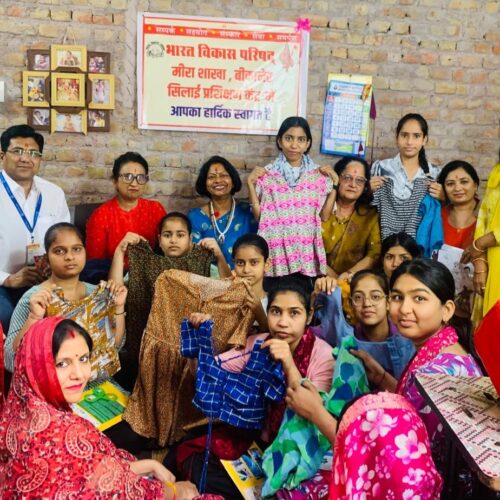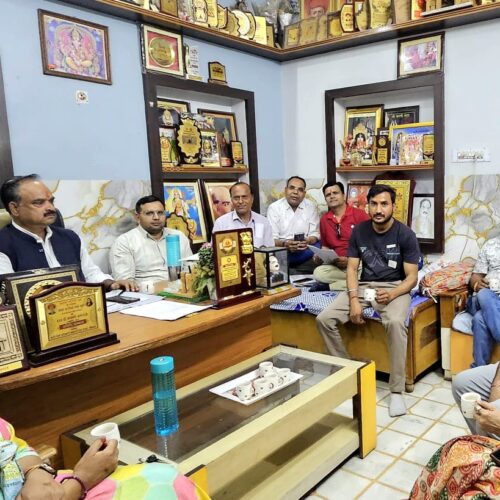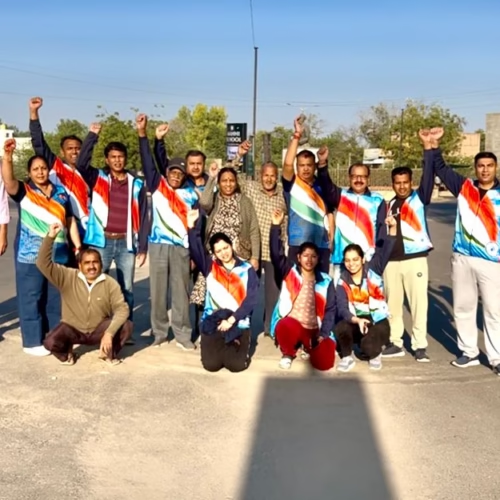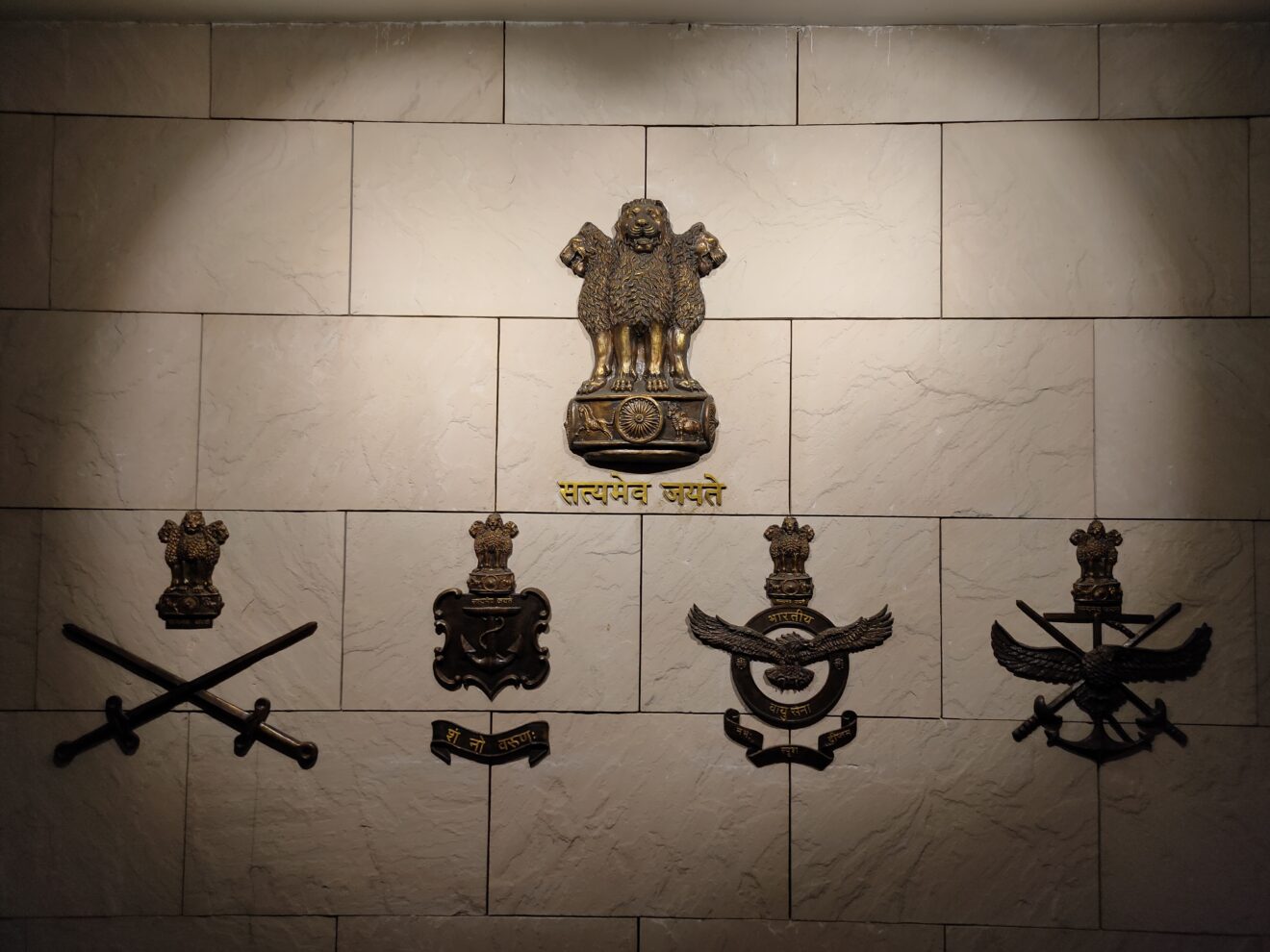BY DEFENCE JOURNALIST SAHIL | T.I.N. NETWORK
Southern Command Hosts Border District Military-Civil Fusion Seminar: Konark Corps Reinforces Synergy Across Jodhpur, Jaisalmer and Barmer
Jaipur | September 14, 2025
In a landmark initiative underscoring the Indian Army’s evolving approach to comprehensive national security, Southern Command’s Konark Corps conducted the ‘Border District Military-Civil Fusion Seminar’ across Jodhpur, Jaisalmer and Barmer between 01 and 12 September 2025. The extensive seminar was designed to foster synergy between the military, civil administration, developmental agencies and community stakeholders, with the larger vision of preparing border districts of Rajasthan for future challenges—especially in scenarios resembling the recently conducted Operation Sindoor.
Towards a Whole-of-Nation Approach
The seminar drew attention to a central tenet of modern conflict and national resilience—the Whole-of-Nation Approach. This philosophy highlights that safeguarding sovereignty and maintaining operational preparedness cannot remain the sole responsibility of the armed forces. Instead, it requires the active participation of multiple stakeholders including district administrations, civil agencies, community leaders, and development bodies.
Through this framework, Konark Corps emphasized that the border districts of Rajasthan, which serve as both a frontline defence zone and a hub of civilian habitation, must integrate security with sustained development. The seminar thus became a platform for dialogue, cooperation, and the exchange of best practices to achieve collective strength.
Issues of Border Area Development and Security
Several critical issues were brought to the forefront during the deliberations. Participants unanimously acknowledged that border area development is not merely a civilian concern but an operational necessity. Infrastructure such as all-weather roads, fortified communication networks, water supply chains and healthcare facilities in border districts not only improve civilian life but also serve as vital enablers for the Army during operations.
A recurring theme was the convergence of efforts. Officials discussed at length how overlapping developmental schemes and administrative resources can be better streamlined through institutionalized military-civil cooperation. For example, enhancing road connectivity in desert terrain ensures both economic upliftment of border communities and swift mobilisation of military units during emergencies. The seminar also examined power generation, renewable energy harnessing, and logistics hubs in the arid western frontier as dual-use assets—benefiting the population and military alike.
The Role of Coordination in Preparedness
One of the strongest points of emphasis throughout the sessions was coordination. Military officials, civil servants, and development experts all agreed that timely response mechanisms depend on seamless communication and cooperation. During contingencies resembling Operation Sindoor, where rapid joint actions of the Army, Air Force, and paramilitary forces were necessary, it became evident that civil agencies also had an equally vital role to play—from managing evacuation to ensuring uninterrupted supply lines.
The seminar advocated for establishing integrated coordination cells at the district level, which can bring together military representatives, police, civil administration, and emergency services for real-time decision-making. Such measures are not just operational in nature but also strengthen civilian confidence in the state’s preparedness.
Strategic Importance of Road Connectivity
Among all developmental aspects discussed, road connectivity emerged as a critical backbone of national defence and regional progress. Officials concurred that without a strong network of roads in the challenging desert terrain of western Rajasthan, neither civilian prosperity nor operational readiness could be ensured. Roads not only facilitate trade and livelihood in remote villages but also allow for swift troop movement, rapid medical evacuation, and efficient logistics deployment in times of heightened border tensions.
The Army highlighted that in modern warfare, where mobility and speed are decisive factors, the state of infrastructure directly impacts operational effectiveness. Hence, investments in road construction, bridges, and border tracks were described as a force multiplier that serves both developmental and security imperatives.
Outcome: A New Chapter in Military-Civil Integration
The seminar concluded on a note of optimism and reinforced collaboration. All stakeholders agreed on aligning developmental goals with national security imperatives to build a secure, resilient and self-reliant frontier. By bridging the gap between military requirements and civilian development, the initiative has laid the groundwork for a future-ready framework where border districts are not only defended by troops but also strengthened by communities empowered through development.
For the Southern Command and Konark Corps, the seminar marks a step forward in institutionalising military-civil fusion in India’s western frontier. It reflects the broader national vision that India’s border defence strategy cannot be restricted to weapons and troops alone but must integrate governance, infrastructure, and local resilience into a unified security matrix.
Broader Context: Learning from Operation Sindoor
Though framed as a seminar on civil-military synergy, the timing and references to Operation Sindoor were far from coincidental. The large-scale joint operations conducted earlier this year highlighted India’s capability to respond to hostile provocations along its western border, but they also exposed the logistical strains faced by civil authorities and military formations in synchronising resources.
By weaving lessons from that experience into the seminar’s discussions, Konark Corps ensured that stakeholders remain prepared for similar future contingencies. The essence of the deliberations was not just about reacting to crises but building resilience into the very fabric of border governance.
Building a Secure and Resilient Rajasthan
Ultimately, the Southern Command’s initiative has broader implications for India’s national security narrative. Rajasthan’s western border—stretching across Jaisalmer, Barmer, and Jodhpur—remains one of the most sensitive sectors in India’s strategic calculus. By aligning developmental policies with operational needs, the region can evolve into a secure, sustainable and resilient frontier.
The seminar has therefore set a precedent. It signals that the road to a secure India passes not only through fortified borders but also through empowered border communities—where the Army and the people stand shoulder to shoulder, united by a shared vision of defence and development.
BY DEFENCE JOURNALIST SAHIL | T.I.N. NETWORK
दक्षिणी कमान ने आयोजित किया सीमा ज़िले सैन्य-नागरिक संगोष्ठी: जोधपुर, जैसलमेर और बाड़मेर में कोणार्क कोर ने बढ़ाई तालमेल की नई मिसाल
जयपुर | 14 सितम्बर 2025
राष्ट्र की समग्र सुरक्षा दृष्टि को सुदृढ़ बनाने के प्रयास में भारतीय सेना की दक्षिणी कमान के कोणार्क कोर ने 1 सितम्बर से 12 सितम्बर 2025 तक ‘सीमा ज़िले सैन्य-नागरिक संगोष्ठी’ का आयोजन जोधपुर, जैसलमेर और बाड़मेर में किया। इस महत्त्वपूर्ण पहल का उद्देश्य सेना, जिला प्रशासन, विकास एजेंसियों और स्थानीय समुदायों के बीच बेहतर तालमेल स्थापित करना था, ताकि राजस्थान के सीमा ज़िलों को भविष्य की चुनौतियों—विशेषकर हाल ही में सम्पन्न ऑपरेशन सिंदूर जैसे परिदृश्यों—के लिए तैयार किया जा सके।
राष्ट्रव्यापी दृष्टिकोण की ओर कदम
संगोष्ठी ने इस सच्चाई को रेखांकित किया कि आधुनिक संघर्ष और राष्ट्रीय लचीलापन केवल सेना के कंधों पर नहीं छोड़ा जा सकता। इसमें जिला प्रशासन, नागरिक एजेंसियों, सामुदायिक नेताओं और विकास निकायों की सक्रिय भागीदारी भी आवश्यक है।
कोणार्क कोर ने जोर देकर कहा कि राजस्थान के सीमा ज़िले, जो एक ओर सामरिक दृष्टि से अग्रिम पंक्ति हैं और दूसरी ओर बड़ी आबादी का आवास क्षेत्र भी, उनमें सुरक्षा और विकास को एक साथ जोड़ना होगा। इस मंच ने संवाद, सहयोग और सर्वोत्तम प्रथाओं के आदान-प्रदान के लिए ज़मीन तैयार की।
सीमा क्षेत्र विकास और सुरक्षा पर मंथन
चर्चा में यह सर्वसम्मति बनी कि सीमा क्षेत्र का विकास केवल नागरिक मसला नहीं, बल्कि सैन्य दृष्टि से भी अनिवार्य है। सभी मौसम में चलने योग्य सड़कें, मज़बूत संचार नेटवर्क, जल आपूर्ति और स्वास्थ्य सुविधाएँ न केवल स्थानीय जनता का जीवन सुधारती हैं बल्कि अभियानों के दौरान सेना के लिए अहम सहायक सिद्ध होती हैं।
अधिकारी इस बात पर सहमत हुए कि अलग-अलग विकास योजनाओं और प्रशासनिक संसाधनों को संस्थागत सैन्य-नागरिक सहयोग से बेहतर तरीके से समन्वित किया जा सकता है। उदाहरणस्वरूप, रेगिस्तानी इलाक़ों में सड़क कनेक्टिविटी का विस्तार जहाँ स्थानीय समुदायों की आर्थिक उन्नति करता है, वहीं सेना की त्वरित तैनाती में भी मददगार होता है।
तैयारी में समन्वय की भूमिका
सत्रों के दौरान सबसे अहम बिंदु समन्वय का रहा। सभी ने माना कि समय पर प्रतिक्रिया और संकट प्रबंधन के लिए सुचारू संचार और सहयोग आवश्यक है। ऑपरेशन सिंदूर जैसी परिस्थितियों में जब सेना, वायुसेना और अर्धसैनिक बलों की संयुक्त कार्रवाई ज़रूरी थी, तब यह भी स्पष्ट हुआ कि नागरिक एजेंसियों की भूमिका—जैसे आपूर्ति श्रृंखला सुनिश्चित करना और लोगों का सुरक्षित निकास—उतनी ही अहम है।
इसलिए जिला स्तर पर एकीकृत समन्वय कक्ष बनाने की सिफ़ारिश की गई, जिसमें सेना, पुलिस, प्रशासन और आपातकालीन सेवाओं के प्रतिनिधि मिलकर त्वरित निर्णय ले सकें।
सड़क संपर्क: विकास और सुरक्षा की रीढ़
सभी चर्चाओं में सड़क संपर्क को राष्ट्रीय सुरक्षा और क्षेत्रीय विकास की रीढ़ बताया गया। अधिकारियों ने सहमति जताई कि पश्चिमी राजस्थान की कठिन रेगिस्तानी ज़मीन में मज़बूत सड़क नेटवर्क के बिना न तो नागरिक समृद्धि संभव है और न ही सैन्य तैयारी। सड़कें व्यापार और रोज़गार को बढ़ाती हैं, साथ ही सेना को तेज़ी से तैनात करने और मेडिकल इवैक्युएशन में मदद करती हैं।
निष्कर्ष: सैन्य-नागरिक समन्वय का नया अध्याय
संगोष्ठी आशावादी माहौल और सुदृढ़ सहयोग की भावना के साथ समाप्त हुई। सभी ने सहमति जताई कि विकास लक्ष्यों और राष्ट्रीय सुरक्षा की ज़रूरतों को जोड़कर ही मज़बूत और आत्मनिर्भर सीमा क्षेत्र बनाया जा सकता है।
कोणार्क कोर और दक्षिणी कमान के लिए यह प्रयास सैन्य-नागरिक समन्वय को संस्थागत रूप देने की दिशा में महत्वपूर्ण कदम है। यह स्पष्ट संदेश है कि भारत की सीमा रक्षा केवल हथियारों और सैनिकों पर आधारित नहीं हो सकती, बल्कि शासन, बुनियादी ढाँचा और स्थानीय समुदायों की मजबूती भी इसका अभिन्न हिस्सा है।
ऑपरेशन सिंदूर से सबक
हालाँकि संगोष्ठी सैन्य-नागरिक तालमेल पर केंद्रित थी, लेकिन ऑपरेशन सिंदूर का संदर्भ इस पूरे विमर्श के केंद्र में रहा। उस बड़े पैमाने के संयुक्त अभियान ने भारत की सामरिक क्षमता को प्रदर्शित किया, पर साथ ही नागरिक और सैन्य संस्थाओं में संसाधन तालमेल की चुनौतियाँ भी उजागर कीं।
इस अनुभव को चर्चाओं में शामिल कर कोणार्क कोर ने यह सुनिश्चित किया कि भविष्य में समान परिस्थितियों में सभी एजेंसियाँ बेहतर तरीके से तैयार रहें।
सुरक्षित और मज़बूत राजस्थान की ओर
दक्षिणी कमान की यह पहल भारत की राष्ट्रीय सुरक्षा नीति के लिए व्यापक महत्व रखती है। जैसलमेर, बाड़मेर और जोधपुर का पश्चिमी सीमा क्षेत्र देश की रणनीतिक गणना में अहम है। यदि विकास और सुरक्षा नीतियों को जोड़ा जाए, तो यह इलाका एक सशक्त और स्थायी सीमांत क्षेत्र में बदल सकता है।
यह संगोष्ठी एक नज़ीर पेश करती है। यह संदेश देती है कि सुरक्षित भारत का मार्ग केवल मज़बूत सीमाओं से नहीं, बल्कि सक्षम और सशक्त सीमा समुदायों से भी होकर जाता है—जहाँ सेना और जनता कंधे से कंधा मिलाकर खड़ी हो।













Add Comment